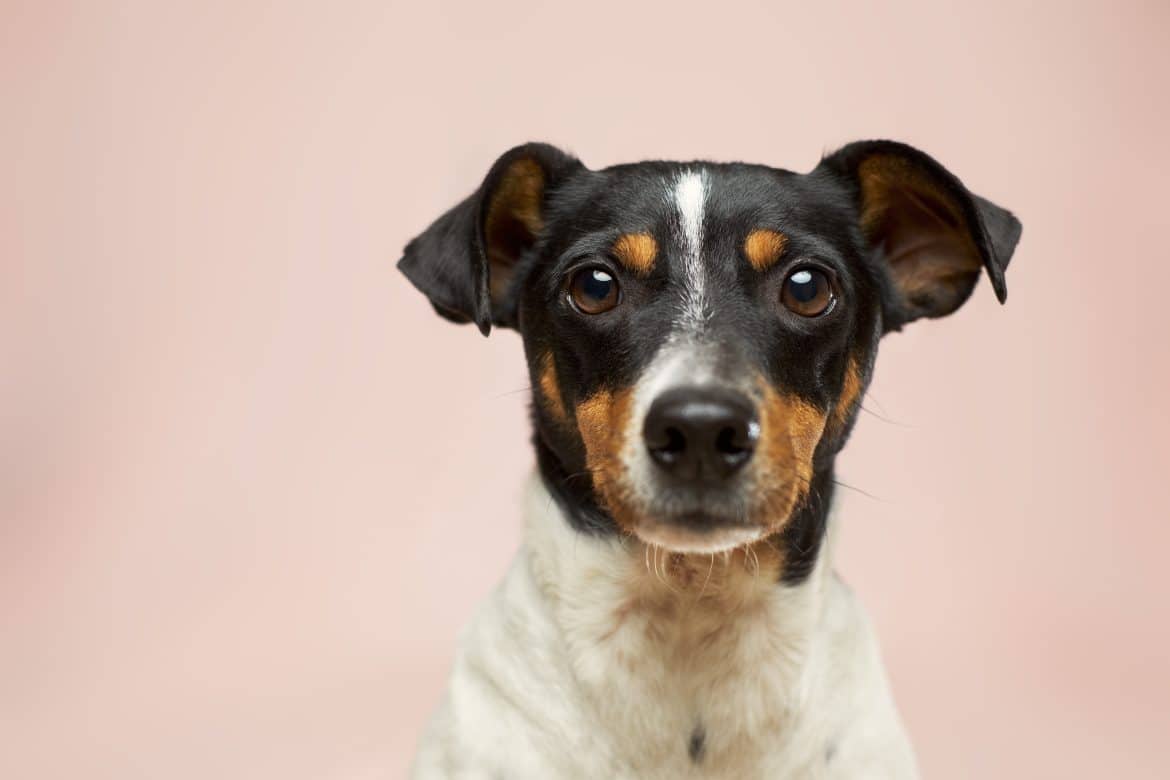So, you've decided to bring home a new furry friend and embark on the journey of raising a healthy puppy! Congratulations! Making sure your new bundle of joy grows up strong, happy, and full of vitality is a top priority for every pet owner. In this ultimate guide, we'll provide you with all the essential information, tips, and tricks you need to ensure your puppy not only thrives but also becomes an integral part of your family. From proper nutrition and exercise to socialization and training techniques, get ready to dive into a world of puppy parenthood!
Feeding a Puppy
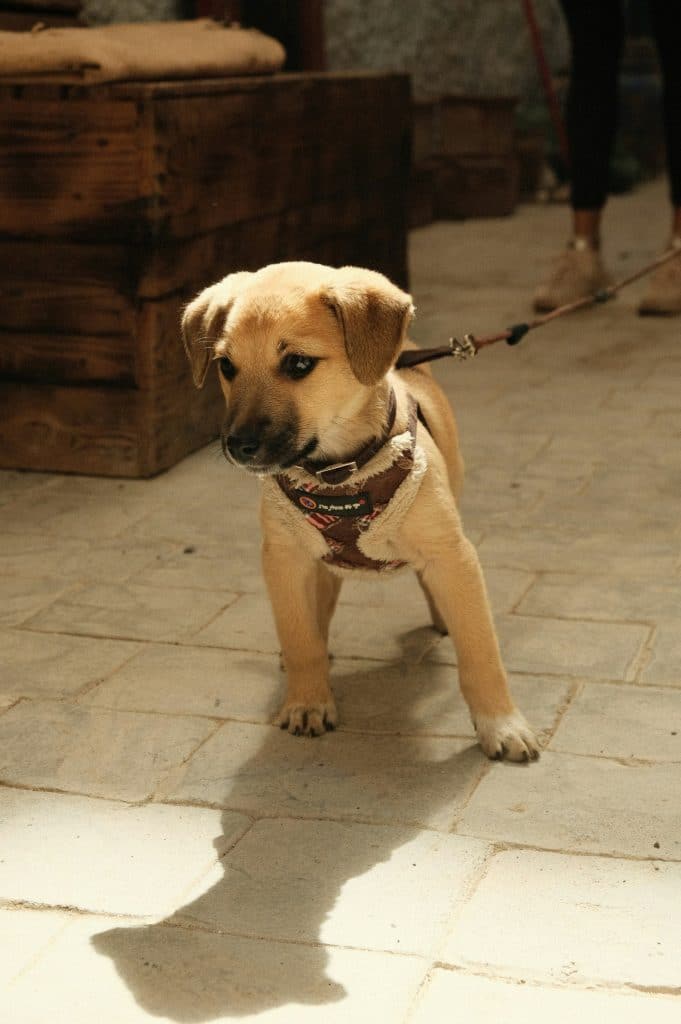
This image is property of images.unsplash.com.
Choosing the Right Puppy Food
When it comes to feeding your puppy, choosing the right food is essential for their health and overall well-being. It is important to select a high-quality puppy food that is specifically formulated to meet the nutritional needs of young dogs. Look for a brand that is labeled as "complete and balanced" to ensure that your puppy gets all the nutrients they need for proper growth.
It is recommended to opt for a puppy food that is appropriate for your puppy's specific breed size. Small breed puppies have different nutritional requirements compared to large or giant breed puppies. The size of the kibble should be suitable for your puppy's mouth size as well. Consulting with your veterinarian can help you determine the best food option for your puppy.
Feeding Schedule and Portion Sizes
Establishing a regular feeding schedule is crucial for a puppy's development and overall health. Puppies have smaller stomachs and higher energy needs compared to adult dogs, so they require more frequent meals throughout the day.
Typically, it is recommended to feed your puppy three to four meals a day until they are around six months old. After that, you can gradually transition to two meals per day. Remember to divide their daily recommended portion into multiple meals to avoid overfeeding or overwhelming their digestive system.
The portion sizes will vary depending on your puppy's breed, age, and activity level. Follow the guidelines provided on the puppy food's packaging, but also consider your puppy's individual needs. Consulting with your veterinarian can help you determine the appropriate portion sizes for your puppy.
Understanding Nutritional Needs
Puppies have specific nutritional requirements that are different from adult dogs. They need a balanced diet that provides the essential nutrients for growth, development, and overall health. These include proteins, fats, carbohydrates, vitamins, and minerals.
Protein is a vital component of a puppy's diet as it aids in muscle development and tissue repair. Look for puppy foods that list high-quality sources of animal protein, such as chicken or beef, as the main ingredient.
Fats are another important nutrient for puppies as they provide energy and support brain development. Ensure that the puppy food contains healthy sources of fats, like chicken fat or fish oil.
Carbohydrates provide a source of energy for young dogs, but it is important to select puppy foods that have easily digestible carbohydrates like rice or sweet potatoes.
Additionally, puppy food should contain essential vitamins and minerals, such as calcium, phosphorus, and omega-3 fatty acids, to support healthy bone growth, a strong immune system, and good overall health.
Always check the ingredient list and nutritional information on the puppy food packaging to ensure that it meets the specific needs of your growing puppy.
Socializing Your Puppy
Introducing Your Puppy to New People
Properly socializing your puppy is crucial for their development and future behavior. One important aspect of socialization is introducing your puppy to new people in a positive and controlled manner. Exposing them to different people, including children, adults, and individuals wearing hats or glasses, will help them become comfortable in various social situations.
When introducing your puppy to new people, it is essential to create a calm and relaxed environment. Start by allowing your puppy to approach at their own pace, and avoid overwhelming them with too many new individuals at once. Encourage people to offer treats or engage in gentle play with your puppy to create positive associations.
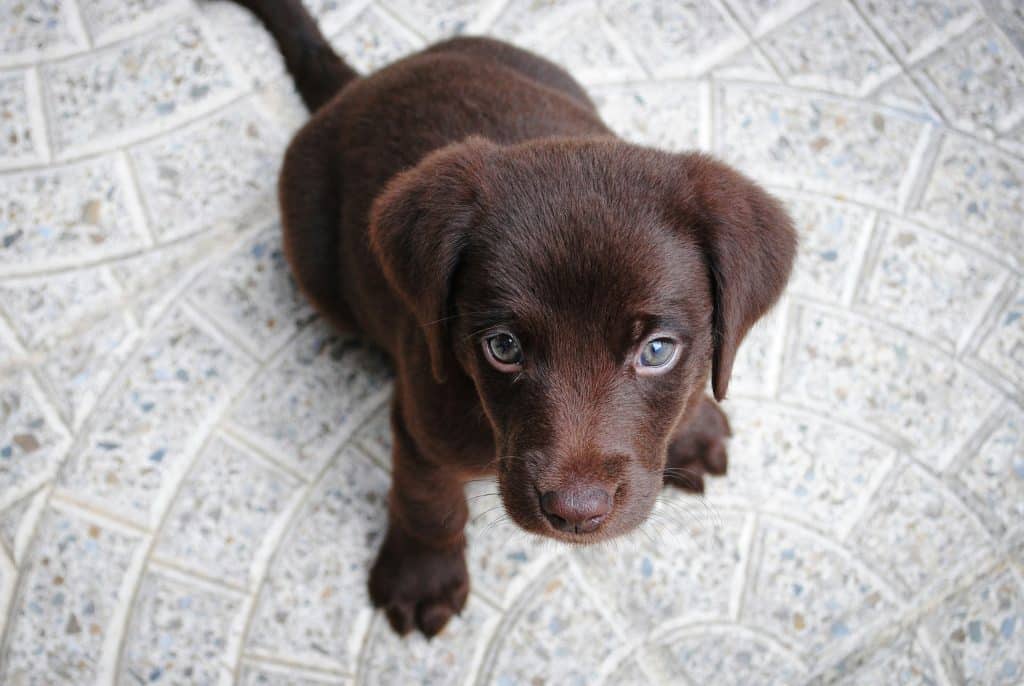
This image is property of images.unsplash.com.
Exposing Your Puppy to Different Environments
In addition to meeting new people, it is important to expose your puppy to different environments to ensure they become well-adjusted and confident in various settings. Take your puppy on walks to places with different sounds, sights, and smells. Gradually expose them to outdoor activities such as parks, beaches, or busy streets.
When exposing your puppy to new environments, always prioritize their safety and comfort. Start with less stimulating environments and gradually increase the level of stimulation as your puppy becomes more familiar and comfortable with new surroundings. Reward your puppy with praise and treats for calm and confident behavior.
Socializing with Other Dogs
Socializing your puppy with other dogs is essential for their social development and to prevent future behavior problems. It is important to expose them to a variety of well-behaved and properly vaccinated dogs in controlled settings.
Start by introducing your puppy to calm and friendly adult dogs that can serve as positive role models. Choose dogs that are comfortable and patient with puppies. Allow them to interact under supervision, ensuring that the environment is safe and without any aggressive or overwhelming behavior.
Consider enrolling your puppy in a puppy socialization class or seek opportunities for supervised interactions with other dogs. Positive experiences with other dogs during the critical socialization period can help your puppy develop good manners and positive play behaviors.
Basic Training
House Training
House training, also known as potty training, is an important aspect of basic puppy training. It involves teaching your puppy appropriate elimination habits and guiding them to eliminate in the designated outdoor area.
Establish a routine by taking your puppy outside regularly – upon waking up, after meals, and after playtime or naps. When your puppy eliminates in the correct spot, reward them with praise and treats to reinforce the desired behavior.
Crate Training
Crate training is a valuable tool for teaching your puppy boundaries and providing them with a safe and comfortable space of their own. A crate can serve as a den for your puppy, mimicking the natural instincts of dogs to seek out a cozy space.
Introduce your puppy to the crate gradually, making it a positive and pleasant experience. Start by leaving the crate door open and placing treats or toys inside to encourage your puppy to explore and associate the crate with positive things. Gradually extend the amount of time your puppy spends in the crate, always ensuring they have access to water, toys, and comfortable bedding.
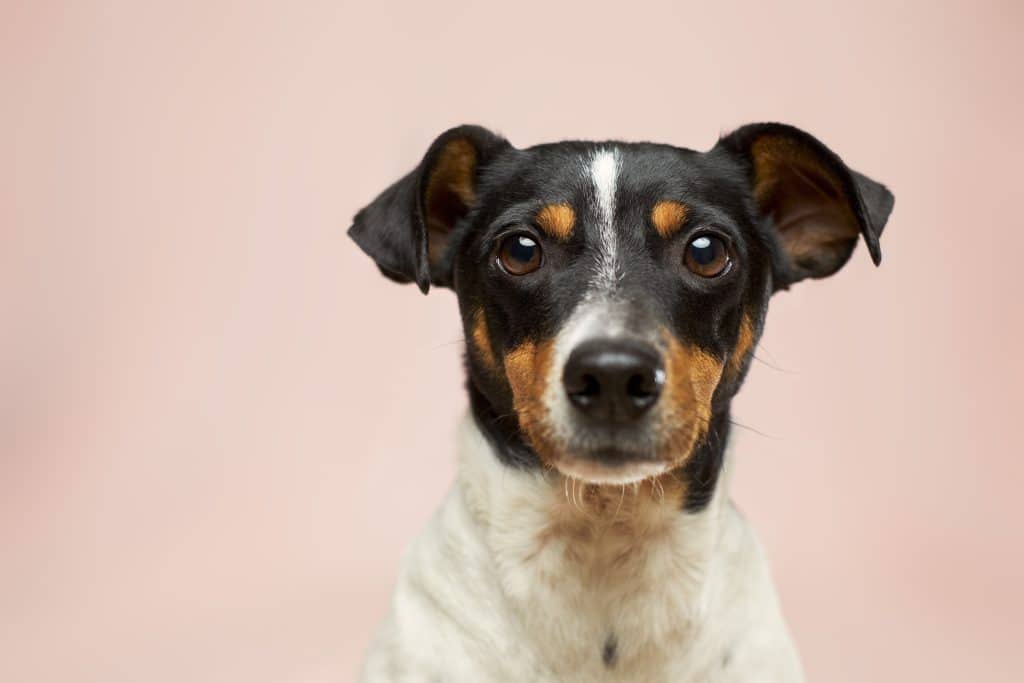
This image is property of images.unsplash.com.
Teaching Basic Commands
Teaching your puppy basic commands is an important foundation for their overall behavior and obedience. Start with simple commands such as "sit," "stay," and "come."
Use positive reinforcement techniques, such as treats, verbal praise, and gentle petting, to reward your puppy for following the command. Keep training sessions short, fun, and consistent to maintain your puppy's interest and maximize their learning potential.
Seeking guidance from a professional dog trainer or enrolling in puppy training classes can be beneficial in effectively teaching your puppy basic commands and building a strong bond with them.
Exercise and Physical Activity
Understanding Your Puppy's Exercise Needs
Exercise is vital for a puppy's physical and mental development. It helps to burn off excess energy, keep them physically fit, and prevent behavioral problems that may arise from boredom or pent-up energy. However, it is important to understand your puppy's exercise needs and provide appropriate activities.
Puppies have different exercise requirements depending on their breed, age, and size. While some breeds require more intense exercise, others may have specific limitations due to their physical characteristics. For example, large breed puppies should avoid excessive jumping or running on hard surfaces to prevent joint issues.
Always consult with your veterinarian to determine the appropriate exercise routine for your puppy. They can provide guidance on the duration and intensity of exercise suitable for your puppy's age and breed.
Engaging in Playtime
Playtime is not only enjoyable for both you and your puppy but also contributes to their physical and mental well-being. Engaging in regular play sessions can help provide mental stimulation, strengthen the bond between you and your puppy, and promote healthy physical development.
Offer a variety of toys that are safe and appropriate for your puppy's age and breed. Interactive toys, such as puzzle toys or treat-dispensing toys, can provide mental stimulation and keep your puppy engaged. Rotate the toys regularly to maintain their interest.
During playtime, encourage your puppy to engage in interactive games such as fetch or tug-of-war. These activities can help burn off excess energy and provide essential exercise. Remember to always supervise playtime to ensure the safety of your puppy.
Participating in Outdoor Activities
Taking your puppy on outdoor adventures can provide them with new experiences, mental stimulation, and opportunities for exercise. Explore local parks, hiking trails, or dog-friendly areas where your puppy can safely explore the environment and interact with other dogs and people.
Remember to always prioritize your puppy's safety during outdoor activities. Keep them on a leash when required, and ensure they are properly vaccinated and protected against parasites. Pay attention to their body language and provide breaks or rest when needed.
Outdoor activities should be a positive experience for your puppy, so always consider their individual needs and limitations. Consult with your veterinarian to determine the appropriate outdoor activities for your puppy based on their age, breed, and overall health.
Grooming and Hygiene
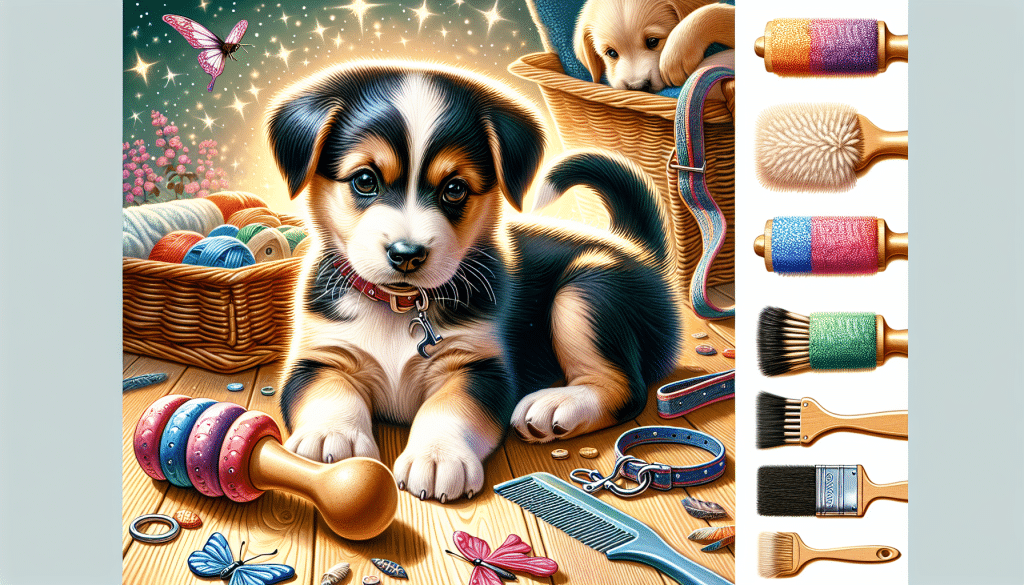
Bathing and Brushing
Maintaining proper grooming habits is essential for your puppy's hygiene and overall health. Regular bathing and brushing help keep their coat clean, free from tangles, and promote healthy skin.
The frequency of bathing will depend on your puppy's breed and activities. Some breeds require more frequent baths, while others may need less frequent bathing. Use a gentle, puppy-specific shampoo and ensure the water temperature is comfortable for your puppy. Be mindful of not over-bathing, as it can strip their coat of natural oils.
Brushing your puppy's coat with a suitable brush or comb helps prevent matting and removes loose fur. Start grooming sessions gradually, using positive reinforcement techniques to ensure your puppy enjoys the experience. Additionally, regular brushing can help you identify any skin issues, such as fleas or ticks, and address them promptly.
Trimming Nails
Nail trimming is an essential part of your puppy's grooming routine. Long nails can cause discomfort, affect their gait, and even lead to injuries. Regular nail trimming ensures that your puppy's nails are kept at an appropriate length.
Introduce your puppy to nail trimming gradually, associating it with positive experiences. Begin by touching and handling their paws gently, and gradually progress to using a proper nail trimmer. Be cautious and trim only the tip of the nail, avoiding the quick, which is the sensitive part that contains blood vessels and nerves.
If you are uncertain about trimming your puppy's nails, seek guidance from a professional groomer or veterinarian. They can demonstrate the proper technique and provide advice specific to your puppy's needs.
Cleaning Ears and Teeth
Proper ear and dental care are crucial for your puppy's overall health and well-being. Regular cleaning can help prevent ear infections, remove excess wax, and maintain good oral hygiene.
To clean your puppy's ears, use a gentle ear cleaning solution recommended by your veterinarian. Moisten a cotton ball or pad with the solution and gently wipe the visible part of the ear without inserting anything into the ear canal. Avoid excessive cleaning, as it can cause irritation.
Dental care is important to prevent dental diseases, such as tartar buildup and gum inflammation. Start by introducing your puppy to toothbrushing gradually, using a puppy-friendly toothpaste and toothbrush. Make sure to brush their teeth gently and focus on the outer surfaces. Regular dental check-ups with your veterinarian are also essential for monitoring your puppy's oral health.
Healthcare and Vaccinations
Choosing a Veterinarian
Selecting a veterinarian is a crucial step in ensuring your puppy's health and well-being. Look for a veterinarian who has experience with puppies and is knowledgeable about their specific breed and healthcare needs.
Consider factors such as the veterinarian's reputation, proximity to your home, and availability for emergency situations. Schedule a meet-and-greet appointment with potential veterinarians to discuss their approach to puppy care and address any questions or concerns you may have.
Establishing a good relationship with your chosen veterinarian is important for your puppy's ongoing healthcare and routine check-ups. They can provide guidance on vaccinations, preventive care, nutrition, and address any health issues that may arise.
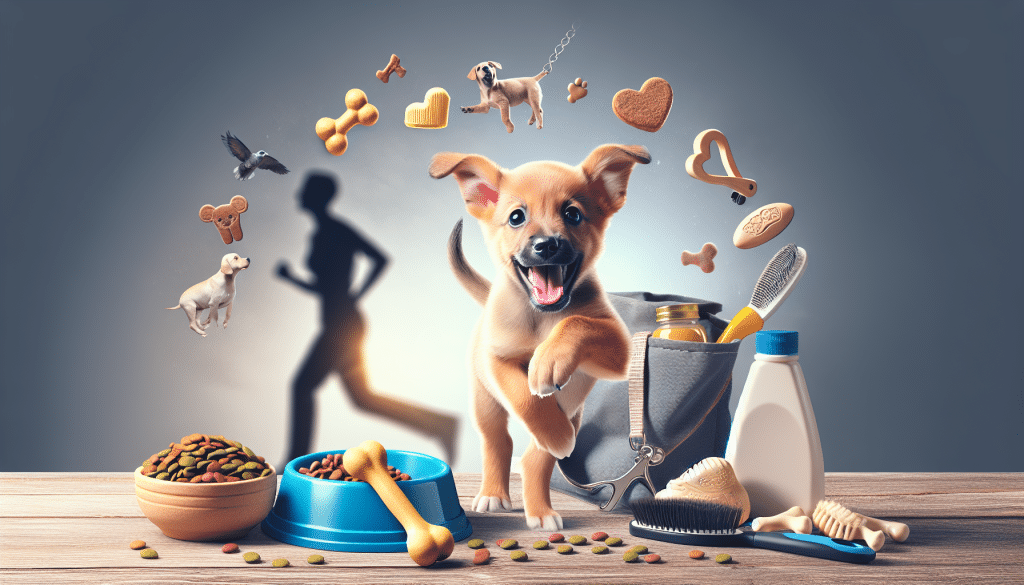
Vaccination Schedule
Proper vaccination is essential for protecting your puppy from various contagious and potentially life-threatening diseases. Vaccinations help boost your puppy's immune system and prevent the spread of diseases within the dog population.
Consult with your veterinarian to create a vaccination schedule tailored to your puppy's needs. Typically, puppies receive a series of vaccinations starting at around 6 to 8 weeks of age, with booster shots given every few weeks until they are around 16 weeks old. Vaccinations commonly include protection against diseases such as parvovirus, distemper, adenovirus, and rabies.
Adhering to the recommended vaccination schedule helps ensure your puppy's health and provides them with a strong immune system to fight off potential diseases. Keep a record of your puppy's vaccinations and discuss any additional vaccinations they may need as they grow.
Preventive Care
In addition to vaccinations, preventive care is an important aspect of maintaining your puppy's health and preventing the onset of various diseases. Your veterinarian can provide guidance on preventive measures such as parasite control, flea and tick prevention, and heartworm prevention.
Regular deworming treatments help eliminate any internal parasites that your puppy may have acquired. Preventive measures against fleas, ticks, and other external parasites are essential to keep your puppy comfortable and prevent the transmission of diseases.
Maintaining a well-balanced diet, appropriate exercise, and regular grooming practices are also essential for your puppy's preventive care. Regular veterinary check-ups allow your veterinarian to monitor your puppy's overall health, detect any potential issues early on, and provide appropriate treatment or recommendations.
Managing Puppy Behavior
Dealing with Chewing and Biting
Chewing and biting are natural behaviors for puppies as they explore the world around them and deal with teething. It is important to redirect these behaviors onto appropriate toys and discourage biting on inappropriate items, such as furniture or your hands.
Provide your puppy with a variety of chew toys that are specifically designed for teething puppies. Offer these toys whenever you notice your puppy exhibiting chewing behaviors. This helps redirect their attention and alleviates teething discomfort.
When it comes to biting, it is crucial to discourage aggressive or excessive biting. If your puppy nips or bites, firmly say "no" and redirect their attention to a suitable toy. Praise and reward your puppy when they chew on appropriate items, reinforcing the desired behavior.
Addressing Separation Anxiety
Separation anxiety is a common issue among puppies as they naturally form strong bonds with their human caregivers. Helping your puppy adjust to being alone and preventing separation anxiety requires patience and gradual desensitization.
Start by leaving your puppy alone for short periods and gradually increase the time as they become more comfortable. Provide engaging toys or treats that can keep them occupied while you are away. Avoid making a fuss when leaving or arriving home, as this can heighten your puppy's anxiety.
Creating a safe and comfortable environment, such as a crate or a designated area, can also help alleviate separation anxiety. Anxious puppies may benefit from additional support through pheromone diffusers or calming aids recommended by your veterinarian.
If your puppy's separation anxiety becomes severe or persists despite your efforts, consult with a professional dog trainer or veterinarian experienced in behavior issues. They can provide tailored advice and potential solutions to help manage and alleviate separation anxiety.
Avoiding Common Behavior Issues
Understanding and addressing common behavior issues can contribute to a well-behaved and happy puppy. Consistency, positive reinforcement, and early intervention are key to preventing or managing behavior problems.
Some common behavior issues include excessive barking, jumping on people, or pulling on the leash during walks. Consistently reinforce positive behaviors through rewards and praise, and redirect unwanted behaviors onto appropriate alternatives.
Proper socialization and training play crucial roles in preventing behavior issues. Exposing your puppy to different people, environments, and experiences helps them develop confidence and adaptability. Enrolling in puppy training classes or seeking guidance from a professional dog trainer can provide you with the tools and knowledge to address and prevent behavior problems effectively.
Creating a Safe Environment
Puppy-Proofing Your Home
Before bringing your puppy home, it is important to create a safe environment that is free from potential hazards. Puppy-proofing your home helps prevent accidents and ensures the well-being of your puppy.
Secure or remove any toxic substances, such as cleaning products or medications, that could harm your puppy if ingested. Ensure that electrical cords and other potential choking hazards are out of reach. Block off areas that are off-limits to your puppy, such as stairs or rooms with valuable or delicate items.
Consider using baby gates or barriers to confine your puppy to safe areas when necessary. Use cord protectors or tuck cords away to minimize the risk of electrical shocks or entanglement. Anchoring heavy furniture and securing loose objects can prevent accidents caused by your puppy's curiosity.
Regularly inspect your home for potential hazards and adapt your puppy-proofing measures as they grow and explore new areas. Providing a safe environment will allow your puppy to feel secure and reduce the risk of accidents.
Choosing the Right Dog Bed and Toys
Selecting the appropriate dog bed and toys for your puppy is important for their comfort, safety, and mental stimulation. A comfortable and supportive bed promotes healthy rest and ensures your puppy has a designated space of their own.
When choosing a dog bed, consider your puppy's size, breed, and any specific needs they may have. Opt for a bed that is easy to clean and made of durable materials. Ensure that the bed is suitable for your puppy's age, providing enough comfort and support as they grow.
Toys play a crucial role in keeping your puppy mentally stimulated and entertained. Choose toys that are appropriate for their age, size, and breed. Avoid toys with small parts that could be a choking hazard. Consider a variety of toys, such as plush toys, puzzle toys, or interactive toys, to provide different types of stimulation.
Keep an eye on your puppy's toys and replace any damaged or worn-out toys to prevent any potential injuries. Regularly rotate toys to keep your puppy engaged and prevent boredom.
Ensuring a Secure Outdoor Space
If you have a secure outdoor space where your puppy can spend time, it is important to make sure it is safe and suitable for their needs. A securely fenced yard helps prevent your puppy from escaping and protects them from potential dangers outside.
Inspect the fencing for any gaps or holes that your puppy may be able to squeeze through. Ensure that the fence is tall enough to prevent jumping or climbing over. Tightly secure gates to prevent accidental escapes.
Create a designated potty area in your yard where your puppy can eliminate. Consistently direct your puppy to this area to establish good habits. Remove any toxic plants or potential hazards from the yard that your puppy could come into contact with.
Provide your puppy with access to fresh water and shade if they will be spending time outdoors. Pets can easily become dehydrated or overheat in high temperatures. Always supervise outdoor time and avoid leaving your puppy unattended for long periods.
Traveling with Your Puppy
Preparing Your Puppy for Travel
Traveling with your puppy requires careful planning and preparation to ensure their safety and comfort. Start by introducing your puppy to their travel carrier or crate gradually and associating it with positive experiences.
Allow your puppy to explore the carrier or crate with the door open, and gradually increase the time they spend inside. Provide comfortable bedding and familiar toys to make them feel secure.
Ensure that your puppy is properly acclimated to the car by taking short drives. Gradually increase the duration of the drives while monitoring your puppy's comfort levels. Avoid feeding your puppy just before travel to prevent car sickness.
Pack essential supplies for your puppy, including food, water, waste bags, and any necessary medications. Additionally, bring along familiar items such as their bed or a favorite toy to provide a sense of familiarity during your travels.
Safe Car Travel
When traveling by car with your puppy, safety should be a top priority. Utilize a properly secured crate or a travel harness to prevent your puppy from roaming around the car, which could be distracting or dangerous. This also helps protect them in the event of sudden stops or accidents.
Never leave your puppy unattended in a parked car, as temperatures can quickly rise, leading to heat stroke or suffocation. Plan for regular rest stops to allow your puppy to stretch their legs, have some water, and take bathroom breaks.
If your puppy experiences anxiety or motion sickness during car travel, consult with your veterinarian. They may be able to recommend strategies or medications to help alleviate these issues and make the journey more comfortable for your puppy.
Taking Your Puppy on Vacation
If you are planning a vacation that includes your puppy, it is important to consider their needs and safety throughout the trip. Research pet-friendly accommodations and destinations, ensuring that they allow pets and have suitable facilities.
Pack all the necessary supplies for your puppy, including food, water, bedding, toys, and any medications or vaccines they may need. Maintain your puppy's routine as much as possible, including regular feeding times, exercise, and bathroom breaks.
Plan activities and outings that are conducive to your puppy's needs and energy levels. Avoid exposing them to potentially stressful situations or overwhelming environments. Monitor your puppy's behavior and stress levels, and provide them with quiet time and a familiar space if needed.
Before traveling, familiarize yourself with local veterinary clinics or emergency facilities in case your puppy requires medical attention while away from home. Have a copy of their medical records, including vaccination and contact information for your regular veterinarian.
Monitoring Your Puppy's Growth
Tracking Weight and Development
Monitoring your puppy's growth is crucial to ensure they are developing properly and maintaining a healthy weight. Regularly weigh your puppy using a scale appropriate for their size and breed. Record their weight and compare it to growth charts provided by your veterinarian or breed-specific resources.
During the growth period, it is normal for puppies to go through growth spurts and experience weight fluctuations. However, significant weight loss or gain may indicate an underlying health issue and should be addressed by your veterinarian.
Observing your puppy's physical development is also important. Monitor their body condition, muscle development, and the alignment of their limbs. Consult with your veterinarian if you notice any abnormalities or concerns.
Recognizing Signs of Health Problems
Being familiar with the common signs of health problems in puppies allows you to recognize potential issues early on and seek appropriate veterinary care. Pay attention to changes in your puppy's appetite, water intake, energy levels, behavior, and bathroom habits.
Some common signs of health problems in puppies include vomiting, diarrhea, coughing, sneezing, excessive scratching, limping, lethargy, or changes in breathing. Monitor your puppy for any abnormalities or changes in their physical appearance, such as lumps, bumps, redness, or discharge from the eyes, nose, or ears.
If you notice any concerning signs or symptoms, consult with your veterinarian promptly. They can provide a thorough examination, recommend diagnostic tests if necessary, and provide appropriate treatment or guidance.
Regular Veterinary Check-ups
Regular veterinary check-ups are essential for ensuring your puppy's ongoing health and well-being. Schedule routine appointments with your veterinarian to monitor your puppy's growth, update vaccinations, and discuss any concerns or questions you may have.
During veterinary check-ups, your puppy will receive a comprehensive physical examination. Your veterinarian will check their vital signs, eyes, ears, mouth, teeth, and overall body condition. They may also conduct additional tests, such as fecal examinations or blood work, to screen for any underlying health issues.
Regular check-ups allow your veterinarian to detect and address any potential health problems or concerns before they escalate. They can provide tailored advice and recommendations to ensure your puppy remains in optimal health.
By following these guidelines and providing your puppy with the necessary care and attention, you are setting the foundation for a healthy, happy, and well-adjusted canine companion. Remember that every puppy is unique, and it is important to tailor your approach to their individual needs. Enjoy the journey of raising a healthy puppy and cherish the special bond you will create together!

